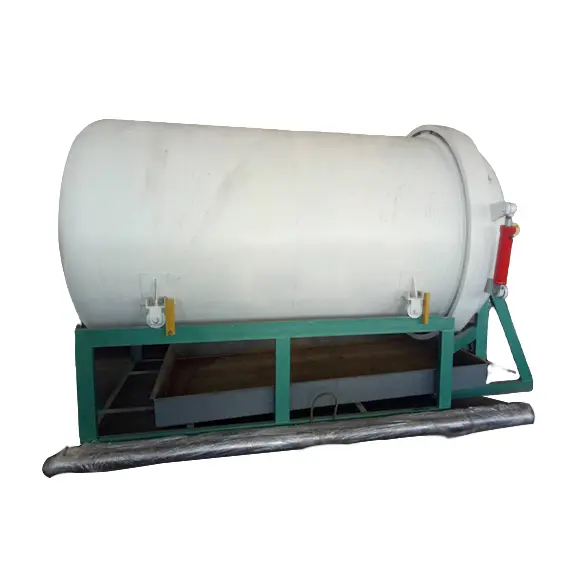ធ្នូ . 03, 2024 14:29 Back to list
flaxseed oil refinery unit factory
The Flaxseed Oil Refinery Unit A Sustainable Approach to Oil Processing
Flaxseed oil, derived from the seeds of the flax plant (Linum usitatissimum), is celebrated for its health benefits, including high omega-3 fatty acid content, lignans, and antioxidants. As the global demand for healthy cooking oils and dietary supplements continues to rise, the establishment of a flaxseed oil refinery unit has become increasingly pertinent. This article explores the various aspects of operating a flaxseed oil refinery unit, focusing on its processes, benefits, and environmental considerations.
1. Understanding Flaxseed Oil
Flaxseed oil is primarily recognized for its nutritional benefits. Rich in alpha-linolenic acid (ALA), a type of omega-3 fatty acid, it supports heart health, reduces inflammation, and may alleviate symptoms of certain health conditions, such as arthritis. The oil is also a significant source of lignans, compounds with antioxidant properties that may contribute to cancer prevention.
2. The Refining Process
The production of flaxseed oil involves several key steps, and refining is crucial to ensure the oil’s purity and quality. The essential stages of the refining process typically include the following
- Harvesting and Seed Preparation Flaxseeds are harvested and cleaned to remove impurities. Proper seed preparation is vital to prevent contamination during the extraction.
- Oil Extraction Two primary methods are employed for oil extraction cold pressing and solvent extraction. Cold pressing retains the highest levels of nutrients and flavor but has a lower oil yield. In contrast, solvent extraction typically yields more oil but may involve chemicals that could compromise the oil's quality.
- Degumming This initial refining step involves removing phospholipids and mucilaginous substances. Water or food-grade acids may be added to facilitate the separation of these impurities.
- Neutralization The oil is treated with an alkali solution to neutralize free fatty acids, which can affect the taste and shelf life
. This process results in a bland, stable product suitable for further processing.flaxseed oil refinery unit factory

- Bleaching To improve the oil's color and clarity, bleaching clay is employed to remove pigments and oxidized materials. This step also contributes to the oil’s visual appeal for retail markets.
- Deodorization Final refining involves steam distillation at high temperatures to eliminate volatile compounds that contribute to undesirable odors and flavors.
3. Economic Viability
Investing in a flaxseed oil refinery unit presents several economic advantages. The increasing awareness of health benefits associated with flaxseed oil has created a lucrative market. Establishing a local refinery can reduce logistics costs and enhance supply chain efficiency by sourcing flaxseeds from regional farmers.
Moreover, a well-implemented business strategy can ensure alignment with sustainability practices. For example, utilizing by-products from the oil extraction process, such as flaxseed meal, can provide additional revenue streams, appealing to the animal feed and health food industries.
4. Environmental Considerations
Sustainability is a key component of any modern industrial operation, and the flaxseed oil refinery unit is no exception. One of the critical environmental aspects is waste management. Implementing a comprehensive waste management strategy can significantly mitigate the environmental impact of the refining process. Recycling water used in various stages and converting waste into bioenergy or organic fertilizer can enhance sustainability.
Additionally, practicing sustainable agriculture by sourcing flaxseeds from organic farms helps minimize the ecological footprint. By fostering relationships with local farmers, refinery units can support biodiversity and soil health in the region.
5. Conclusion
A flaxseed oil refinery unit embodies a sustainable and economically viable approach to oil processing. With the rising demand for healthy oils and increased consumer awareness about their benefits, investing in such operations presents a promising opportunity. By prioritizing quality through careful refining processes and emphasizing sustainability, businesses can contribute positively to both the economy and the environment. As the world continues to embrace healthier lifestyles, the role of flaxseed oil refining will undoubtedly remain significant in meeting these changing consumer preferences.
-
Top Food Oil Refined Unit Companies w/ GPT-4 Turbo Tech
NewsAug.01,2025
-
Premium Black Seed Oil Expeller - High Efficiency Cold Press Oil Machine
NewsJul.31,2025
-
Oil Processing Equipment - High-Efficiency Flaking Machine
NewsJul.25,2025
-
High-Efficiency Peanut Oil Refined Machine for Quality Oil Production Leading Exporters & Companies
NewsJul.08,2025
-
High Efficiency Sunflower Seed Oil Press – Leading Cooking Oil Press Machine Factories & Suppliers
NewsJul.08,2025
-
High-Efficiency Soybean Oil Press Machine – Leading Exporters & Reliable Companies
NewsJul.07,2025
